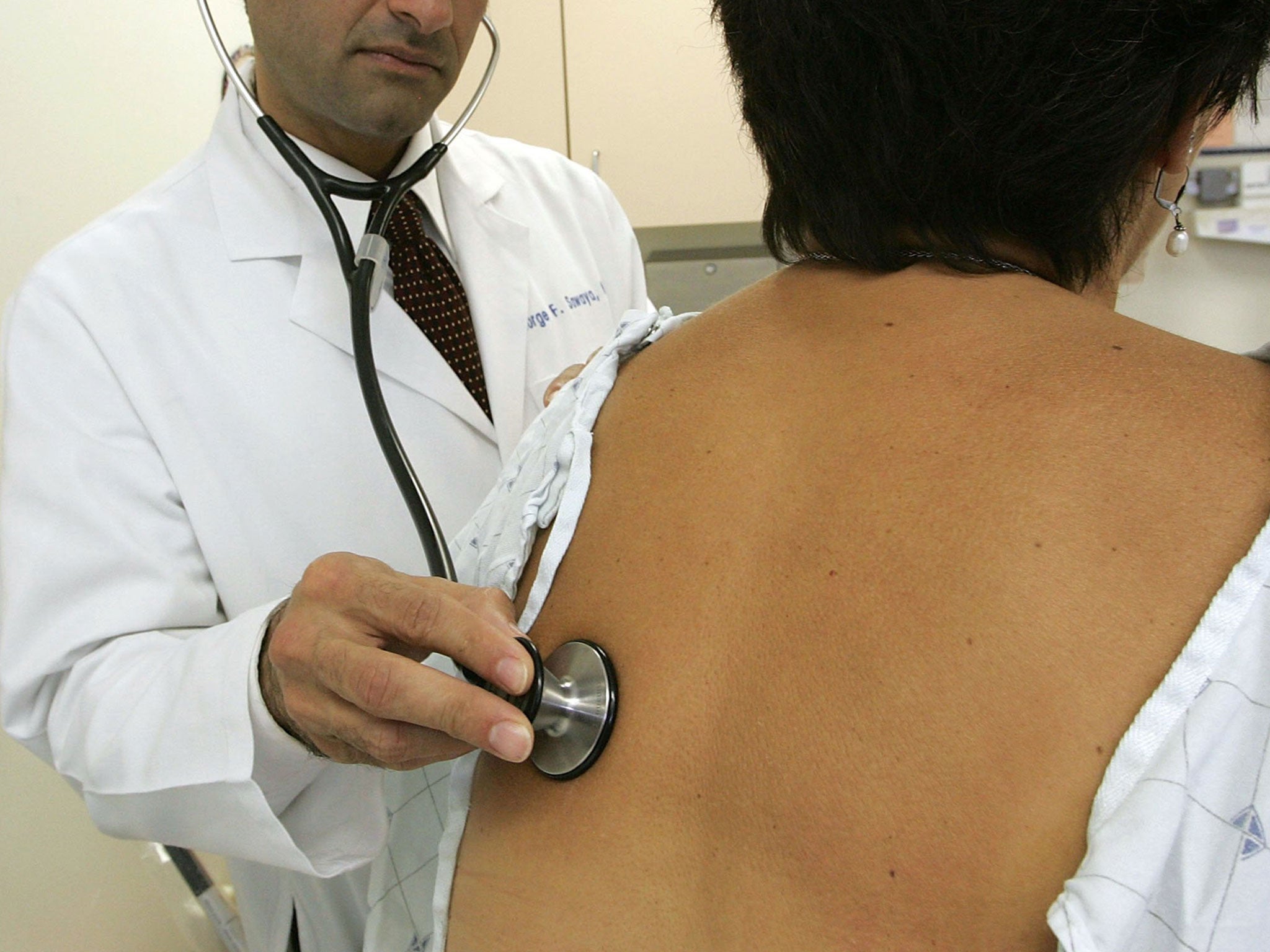'Hand sandwich' technique should be used to examine ticklish patients, say cancer doctors
Being very ticklish can make important medical examinations difficult

Your support helps us to tell the story
From reproductive rights to climate change to Big Tech, The Independent is on the ground when the story is developing. Whether it's investigating the financials of Elon Musk's pro-Trump PAC or producing our latest documentary, 'The A Word', which shines a light on the American women fighting for reproductive rights, we know how important it is to parse out the facts from the messaging.
At such a critical moment in US history, we need reporters on the ground. Your donation allows us to keep sending journalists to speak to both sides of the story.
The Independent is trusted by Americans across the entire political spectrum. And unlike many other quality news outlets, we choose not to lock Americans out of our reporting and analysis with paywalls. We believe quality journalism should be available to everyone, paid for by those who can afford it.
Your support makes all the difference.Cancer doctors have advised other clinicians to use a special technique to examine patients who are ticklish.
For those who are particularly sensitive, being examined can make an already distressing time uncomfortable, while making it difficult for the doctor to check the patient thoroughly.
Writing in the New England Journal of Medicine, doctors proposed using the “hand sandwich” technique which is based on the fact that most people cannot tickle themselves.
The method involves putting the patient’s hands in between the doctor’s hands as they are placed on the body.
By doing so, the patient is able to control the force with which the doctor examines them, Live Science reported.
Dr Christopher Dobson of Royal Preston Hospital in Lancashire, one of the letter’s authors, said that he uses the “hand sandwich” to palpate, or examine, lymph-node basins in the dermatology clinic when examining patients with skin cancer.
“I had one patient so ticklish that even with the most gentle, slow and forewarned palpation, (the patient) could not stop laughing during and after the examination, at a time when they were clearly distressed,” Dobson told Reuters Health told Reuters.
He added that examinations can be “painfully slow” if the technique is not used, in order to ensure ticklish patients are comfortable.
Join our commenting forum
Join thought-provoking conversations, follow other Independent readers and see their replies
Comments